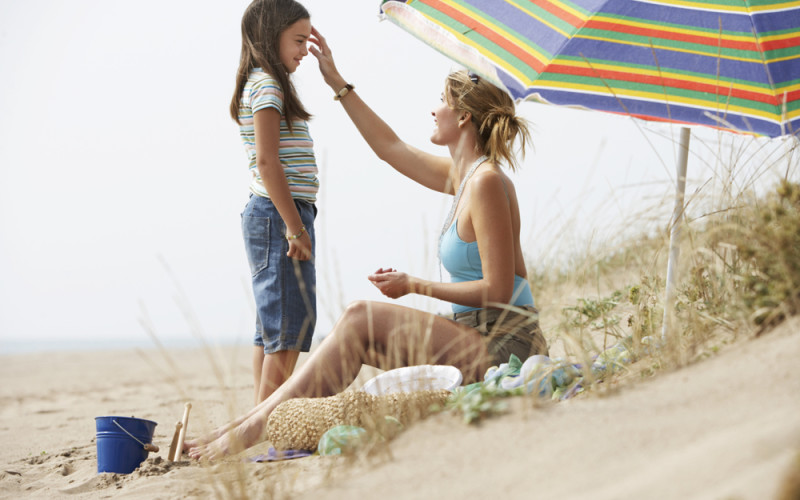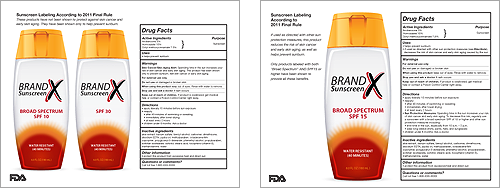Here are the three things you need to look for when you buy sunscreen

Many people “worship” the sun — and this time of year many head to the beach or bask in yard work at home. With summer upon us, sunlight becomes more intense, and the need to wear sunscreen increases.
But how do you choose the right sunscreen? New labeling required by the U.S. Food and Drug Administration should make that easier. The FDA recommends choosing a sunscreen that provides:
-
A sun protection factor (SPF) of at least 15 or higher.
The SPF rating on sunscreen refers to how long it can protect a person from sunburn before it needs to be reapplied. Protection can vary depending on whether the sunscreen is appropriately used and whether or not water washed off the sunscreen, as happens when swimming in the ocean or a pool. After exposure to water, sunscreen should be reapplied within 2 hours. A sunscreen with an SPF of 50 should work better than one with an SPF of 15. There is no evidence that SPF ratings above 50 provide any additional protection.
-
Broad spectrum coverage
When found on a label, “broad spectrum coverage” means that sunscreen has at least an SPF 15 and protects against both UVA and UVB, which are two kinds of ultraviolet light from the sun that can damage the skin and lead to skin cancer.
-
Water-resistant protection
Sunscreens can no longer say “waterproof” or “sweatproof” because they are neither. Instead, they will say water resistant and must say how long they will remain water- and sweat-resistant.
 Sunscreen Labeling According to 2011 Final Rule (PDF)
Sunscreen Labeling According to 2011 Final Rule (PDF)
Does using sunscreen prevent skin cancer or melanoma?
No, but it reduces the risk.
Do sunburns increase your risk of skin cancer?
Yes, for melanoma and non-melanoma skin cancers. Chronic sun exposure also increases your risk.
When does sunscreen expire?
Look for the expiration date on your sunscreen bottle. Its effectiveness decreases progressively after that time.
Should I wear sunscreen if I sit in the shade?
Absolutely. The UVA and UVB rays reflect off water and sand, and shade is often not completely protective.
Don’t my clothes protect me from the sun?
Yes, but lightweight summer clothing has low SPF protection (<10 SPF). There are specially made sun protective clothes that work better.
How often should I reapply sunscreen?
Every two hours if it gets wet or on hot summer days. Sprays are OK for this purpose.